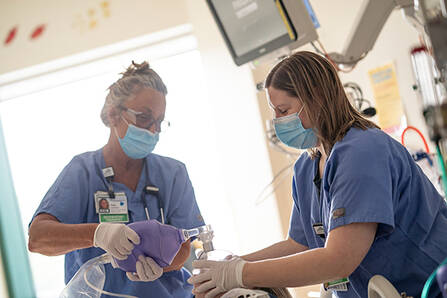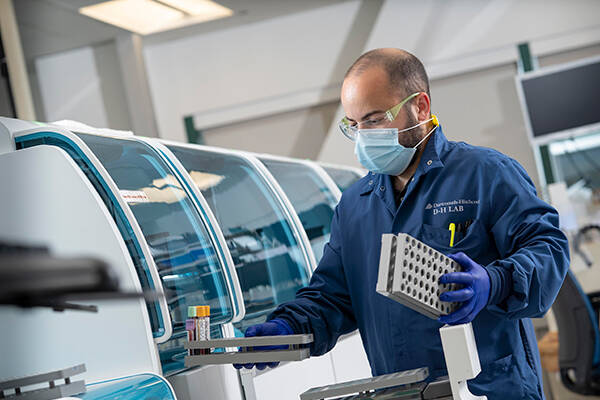Paid and tuition-sponsored Advanced Career Training (ACT) programs
Advanced Career Training (ACT) programs provide current employees with opportunities to obtain the education and training required to advance their healthcare career. Programs offer advancement into roles that are important to the delivery of the highest quality care for our patients. Employee support may include paid learning time and/or tuition resources such as tuition reimbursement, scholarship, or sponsorship to attain a degree or credential with our academic partners.
ACT participants are hired into a trainee role in a hosting department while they complete their educational requirements and clinical training. Upon successful completion of their ACT program, participants are eligible to advance with their new degree or credential.
Learn more about ACT programs
Current ACT programs
The following programs are currently offered through departments at Dartmouth Hitchcock Medical Center *:
- Cytotechnologist
- ECHO cardiology technologist
- Electroencephalographic (EEG) technologist
- Electromyography (EMG) technologist
- Histotechnologist
- Intraoperative monitoring (IOM) technologist
- Medical laboratory technician
- Respiratory therapist
- Vascular technologist
* All Dartmouth Health employees are eligible to apply to ACT programs with a hosting department.
Interested in learning more?
Please view the ACT Programs information catalog for details about each ACT program. For questions and additional information, please fill out an ACT Interest form.
Departments and members interested in becoming hosts or sponsors for an ACT program can contact career.development@hitchcock.org for more information about how programs are established and structured.


